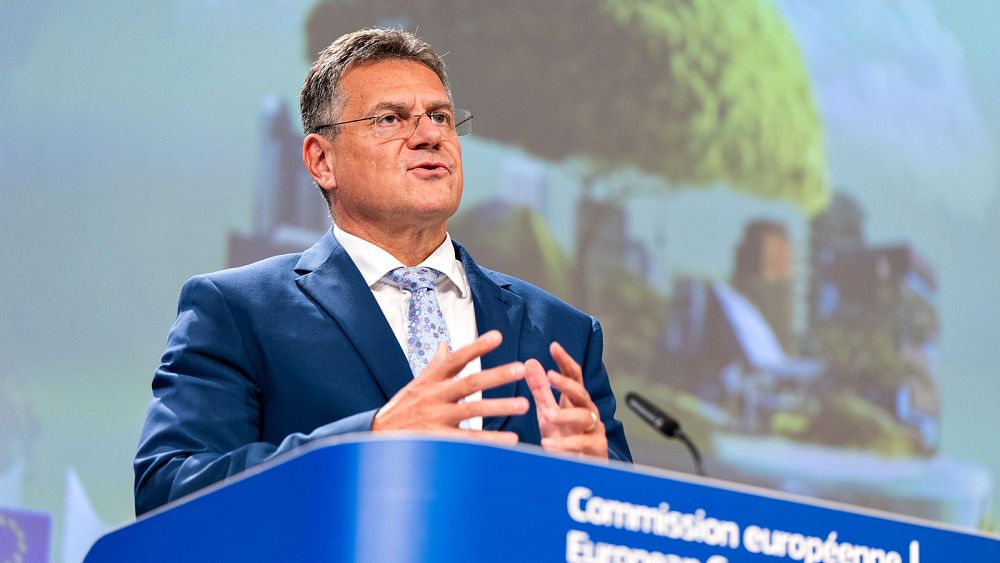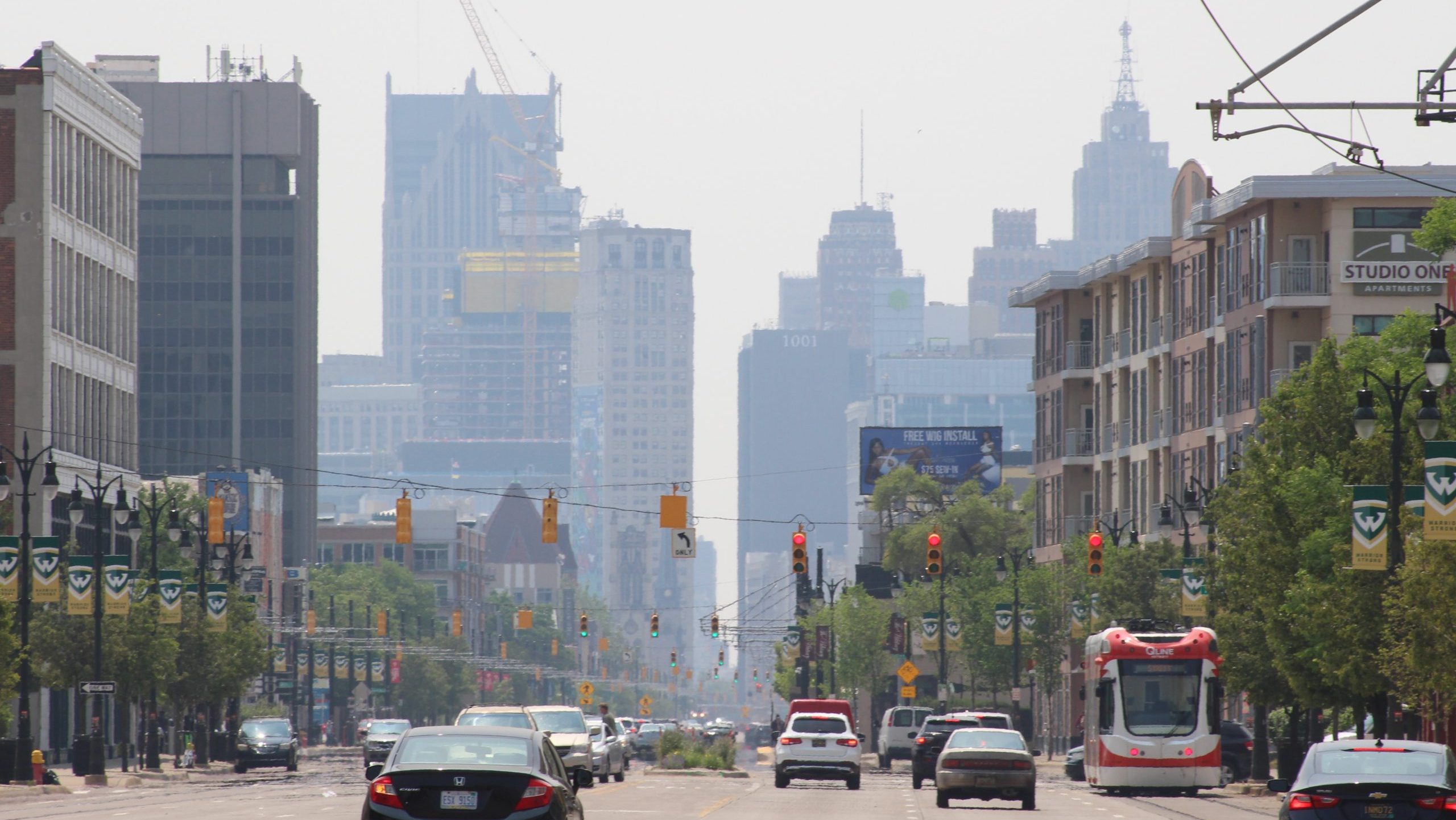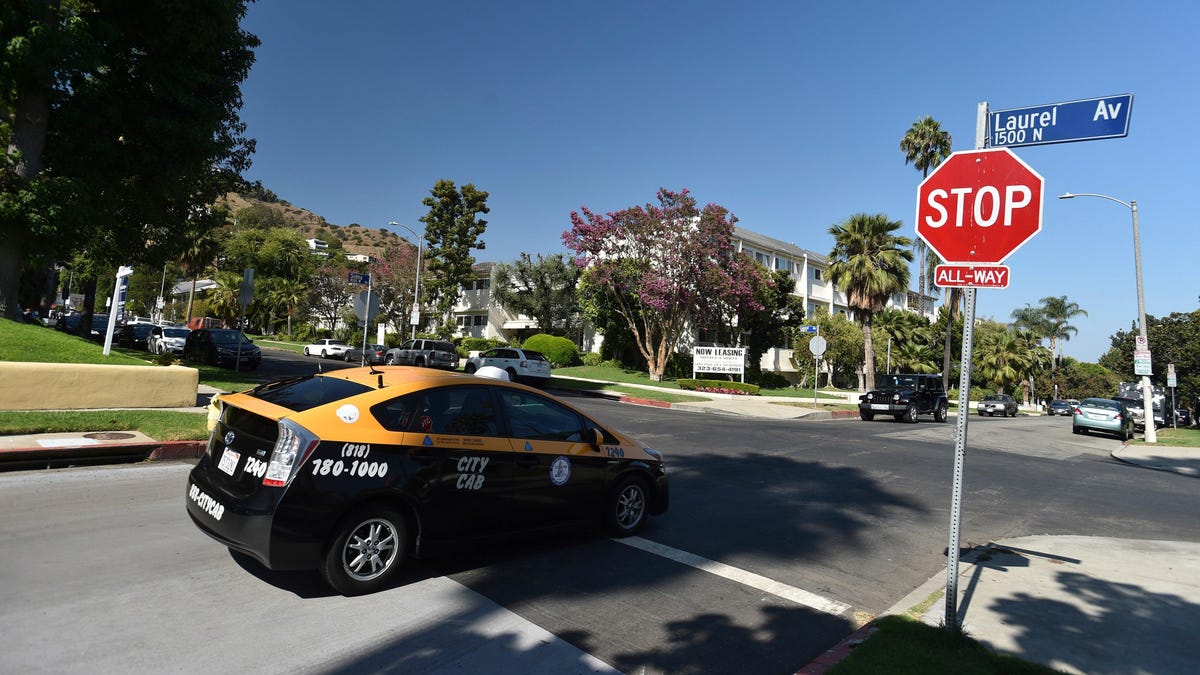World
Rolling out the Green Deal will be ‘challenging,’ says Maroš Šefčovič

Maroš Šefčovič, the European Union’s new climate czar, predicts implementing green legislation will be a hard task for the 27 member states.
“We’re in a new phase because until now we’ve been focusing a lot on legislative work so I think we built this new political but also legislative framework for the Green Deal,” Šefčovič told Euronews in an interview recorded on Tuesday.
“Now we’re approaching the phase that should be equally challenging, if not more, and this is the roll-out, this is proper implementation, this is how to make sure that this climate transition will be done in a socially fair (way), that it will help our industry to be the top competitor on the global markets.”
Over the past couple of years, the EU has passed a raft of transformative laws to slash greenhouse gas emissions by at least 55% before the end of the decade, including a gradual ban on the combustion engine, a border tax on polluting imports and new beefed-up targets for energy efficiency.
On top of that, the bloc has introduced far-reaching plans to wean itself off Russian fossil fuels and ramp up the deployment of renewable systems. The European Commission estimates the effort will require €620 billion annually in additional investments.
“To put (this) in practice, I think will be as challenging as the work we’ve been doing now,” Šefčovič said.
But, he noted, failing to take action would be “the worst possible solution.” The vice-president suggested the executive should, by early next year, propose an “interim” target to further reduce greenhouse gas emissions by 2040, without specifying a percentage level. As of today, the EU only has legally binding goals for 2030 and 2050, when climate neutrality is supposed to be achieved.
“Let’s look at this summer. Let’s look at last summer. Last summer we saw what was terrible. This summer it was much worse,” Šefčovič went on, referring to recent natural disasters, such as the devastating floods in Slovenia and the raging wildfires in Greece.
“We have to behave responsibly. We have to engage more with all stakeholders and we have to work hard to make sure that we manage these three overarching goals: be socially fair, tackle climate change and make our industry competitive.”
A renewed focus on industry
Šefčovič was speaking with Euronews in one of his first TV interviews since being promoted to Executive Vice-President in charge of the European Green Deal, taking over Frans Timmermans, who last week resigned to lead a centre-left alliance in the forthcoming general election in the Netherlands.
With the reshuffle, European Commission President Ursula von der Leyen tried to preserve the delicate political balance in her college: the overarching green portfolio is therefore left in the hands of the socialist group, while the job of climate diplomacy and finance is turned into a separate role, possibly for the conservatives. Until his departure, Timmermans was the highest-profile socialist politician in Brussels, together with Josep Borrell, the EU’s foreign policy chief.
While less outspoken than his Dutch predecessor, Šefčovič has made a name for himself after years of working across the EU’s halls of power and is seen as a safe pair of hands who can handle a variety of policy assignments. In 2019, von der Leyen appointed him as Vice-President for interinstitutional relations and foresight and he was later given the extra tasks of managing the EU-UK relations in the post-Brexit era and spearheading a novel initiative to help member states purchase gas supplies jointly.
Working closer with the private sector, he says, will be among his top priorities.
“A very important issue will be to work very closely with our industry,” Šefčovič said. “I would like to introduce a series of, I would say, structured roundtables with the industries which would be the most affected by the green transition, which are under a lot of pressure from international competitors.”
The approach reflects the anxiety unleashed across the continent as a result of the Inflation Reduction Act (IRA), an initiative introduced last summer by US President Joe Biden that offers generous tax credits, rebates and subsidies to producers of green technology – as long as manufacturing takes place on North American soil.
The IRA has triggered fears of an industrial exodus across the Atlantic Ocean and an irreversible loss of competitiveness for the European economy. In a countermove, the European Commission unveiled earlier this year a new industrial strategy to drastically boost the domestic production of key components, such as batteries, wind turbines, solar panels and heat pumps. The legislation is still under negotiations.
“Our industry should know that we are here to fight for them. We want them not only to stay but to prosper in Europe,” Šefčovič said.
While the idea of establishing industry roundtables is still in the early stages, the vice-president flouted one possible module that could bring together power plants and energy-intensive sectors. This “could be very, very useful because by 2050 we would need probably 3.5 times more electricity than we have right now.”
In response to recent comments made by some European leaders, including French President Emmanuel Macron and Belgian Prime Minister Alexander De Croo, in which they asked for a “pause” in climate legislation, Šefčovič said another of his priorities would be to decrease the administrative burden “as much as possible.”
“I understand that this green transition and tackling climate change, it’s not easy,” he said. “It’s not easy for our citizens, for households, for industries, and for our member states. And I have full sympathy.”

World
Ukraine's divisive mobilization law comes into force as a new Russian push strains front-line troops
KYIV, Ukraine (AP) — A divisive mobilization law in Ukraine came into force on Saturday, as Kyiv struggles to boost troop numbers after Russia launched a new offensive that some fear could close in on Ukraine’s second-largest city.
The legislation, which was watered down from its original draft, will make it easier to identify every conscript in the country. It also provides incentives to soldiers, such as cash bonuses or money toward buying a house or car, that some analysts say Ukraine cannot afford.
Lawmakers dragged their feet for months and only passed the law in mid-April, a week after Ukraine lowered the age for men who can be drafted from 27 to 25. The measures reflect the growing strain that more than two years of war with Russia has had on Ukraine’s forces, who are trying to hold the front lines in fighting that has sapped the country’s ranks and stores of weapons and ammunition.
Ukrainian President Volodymyr Zelenskyy also signed two other laws Friday, allowing prisoners to join the army and increasing fines for draft dodgers fivefold. Russia enlisted its prisoners early on in the war, and personnel shortages compelled Ukraine to adopt the new measures.
Russian troops, meanwhile, are pushing ahead with a ground offensive that opened a new front in northeastern Ukraine’s Kharkiv region and put further pressure on Kyiv’s overstretched military. After weeks of probing, Moscow launched the new push knowing that Ukraine suffered personnel shortages, and that its forces have been spread thin in the northeast.
Russian President Vladimir Putin said on Friday during a visit to China that the Russian push aims to create “a buffer zone” rather than capturing Kharkiv, the local capital and Ukraine’s second-largest city.
Still, Moscow’s forces have pummeled Kharkiv with strikes in recent weeks, hitting civilian and energy infrastructure and prompting angry accusations from Zelenskyy that the Russian leadership sought to reduce the city to rubble. On Friday, Mayor Ihor Terekhov said that Russian guided bombs killed at least three residents and injured 28 others that day.
Moscow denies deliberately targeting civilians, but thousands have died or suffered injuries in the more than 27 months of fighting.
The U.S. last week announced a new $400 million package of military aid for Ukraine, and President Joe Biden has promised that he would rush badly needed weaponry to the country to help it stave off Russian advances. Still, only small batches of U.S. military aid have started to trickle into the front line, according to Ukrainian military commanders, who said it will take at least two months before supplies meet Kyiv’s needs to hold the line.
Thousands of Ukrainians have fled the country to avoid the draft since Russia’s all-out invasion in February 2022, some risking their lives as they tried to swim across a river separating Ukraine from neighboring Romania and Hungary.
Late on Friday, Ukraine’s border service said that at least 30 people have died trying to cross the Tisza River since the full scale-invasion.
Romanian border guards days earlier retrieved the near-naked, disfigured body of a man that appeared to have been floating in the Tisza for days, and is the 30th known casualty, the Ukrainian agency said in an online statement. It said the man has not yet been identified.
___
Follow AP’s coverage at https://apnews.com/hub/russia-ukraine
World
An unusual autumn freeze grips parts of South America, giving Chile its coldest May in 74 years

Chileans are bundling up for their coldest autumn in more than 70 years mere days after sunning in T-shirts — a dramatic change of wardrobe brought on this week by a sudden cold front gripping portions of South America unaccustomed to bitter wind chills this time of year.
CHILE SHUTS DOWN A POPULAR GLACIER, SPARKING DEBATE OVER CLIMATE CHANGE AND ADVENTURE SPORTS
Temperatures broke records along the coast of Chile and in Santiago, the capital, dipping near freezing and making this month the coldest May that the country has seen since 1950, the Chilean meteorological agency reported.
An unusual succession of polar air masses has moved over southern swaths of the continent, meteorological experts say, pushing the mercury below zero Celsius (32 Fahrenheit) in some places. It’s the latest example of extreme weather in the region — a heat wave now baking Mexico, for instance — which scientists link to climate change.
Footprints create the shape of a heart in a snow-covered rugby field in Santiago, Chile, Wednesday, May 8, 2024. (AP Photo/Matias Basualdo)
“The past few days have been one of the longest (cold fronts) ever recorded and one of the earliest ever recorded” before the onset of winter in the Southern Hemisphere, said Raul Cordero, a climatologist at Santiago University. “Typically the incursions of cold air from the Antarctic that drive temperatures below zero occur from June onwards, not so much in May.”
The cold front sweeping in from Antartica has collided with warm air pushing in from the northwestern Amazon, helping fuel heavy rainstorms battering Brazil, according to that country’s National Meteorological system.
Chile’s government issued frosty weather alerts for most of the country and ramped up assistance for homeless people struggling to endure the frigid temperatures on the streets. Snow cloaked the peaks of the Andes and fell in parts of Santiago, leading to power outages in many areas this week.
“Winter came early,” said Mercedes Aguayo, a street vendor hawking gloves and hats in Santiago.
She said she was glad for a boost in business after Chile’s record winter heat wave last year, which experts pinned on climate change as well as the cyclical El Niño weather pattern.
“We had stored these goods (hats and gloves) for four years because winters were always more sporadic, one day hot, one day cold,” Aguayo said.
This week’s cold snap also took parts of Argentina and Paraguay by surprise.
Energy demand soared across many parts of Argentina. Distributors cut supplies to dozens of gas stations and industries in several provinces to avoid outages in households, , the country’s main hydrocarbon company, CECHA, said Thursday.
World
Brussels, my love? Transparency over MEPs' side jobs

In this edition, we look at what lawmakers’ extracurricular activities mean for their core role.
This week, we are joined by Sophia Russack, senior researcher from the Centre for European Policy Studies, Petros Fassoulas, secretary general of European Movement International and Anna Nalyvayko, senior project officer from the Wilfried Martens Center.
Panelists debate the ethical questions raised by MEPs who have side jobs. Those extra roles are legal, but the political earthquake caused by the Qatarargate scandal led to tighter rules and more transparency.
Is this enough to bridge the gulf between citizens and politicians, in today’s fractured political landscape?
“We see that they have improved rules when it comes to reporting requirements, to laying open your financial situation before and after the offers, and so on. But to be honest, none of these things will prevent another Qatargate,” said Sophia Russack, a think tanker who is an expert in EU institutional architecture, decision-making processes and institutional reform.
Despite these concerns, Petros Fassoulas said MEPs shouldn’t abandon contact with the real world altogether.
“It’s important for them to have the opportunity to bring expertise from outside and engage also with the world outside of the chamber,” Fassoulas said. “An MEP or any parliamentarian should be in contact with the people that they regulate, the businesses that they have an impact on.”
Guests also discussed the reasons for the crisis of public confidence in politicians, and gave some ideas for solutions.
Watch “Brussels, my love?” in the player above.
-

 World1 week ago
World1 week agoPentagon chief confirms US pause on weapons shipment to Israel
-

 Politics1 week ago
Politics1 week agoRFK Jr said a worm ate part of his brain and died in his head
-

 Politics1 week ago
Politics1 week agoOhio AG defends letter warning 'woke' masked anti-Israel protesters they face prison time: 'We have a society'
-

 Education1 week ago
Education1 week agoVideo: Police Use Pepper Spray on Protesters on G.W.U.’s Campus
-

 News1 week ago
News1 week agoNine Things We Learned From TikTok’s Lawsuit Against The US Government
-

 Politics1 week ago
Politics1 week agoBiden’s decision to pull Israel weapons shipment kept quiet until after Holocaust remembrance address: report
-

 World1 week ago
World1 week agoA look at Chinese investment within Hungary
-

 News1 week ago
News1 week agoThe Major Supreme Court Cases of 2024









:quality(70)/cloudfront-us-east-1.images.arcpublishing.com/adn/5BVPQDP3BNCD5CBOOCBDNH6Q5I.jpg)








